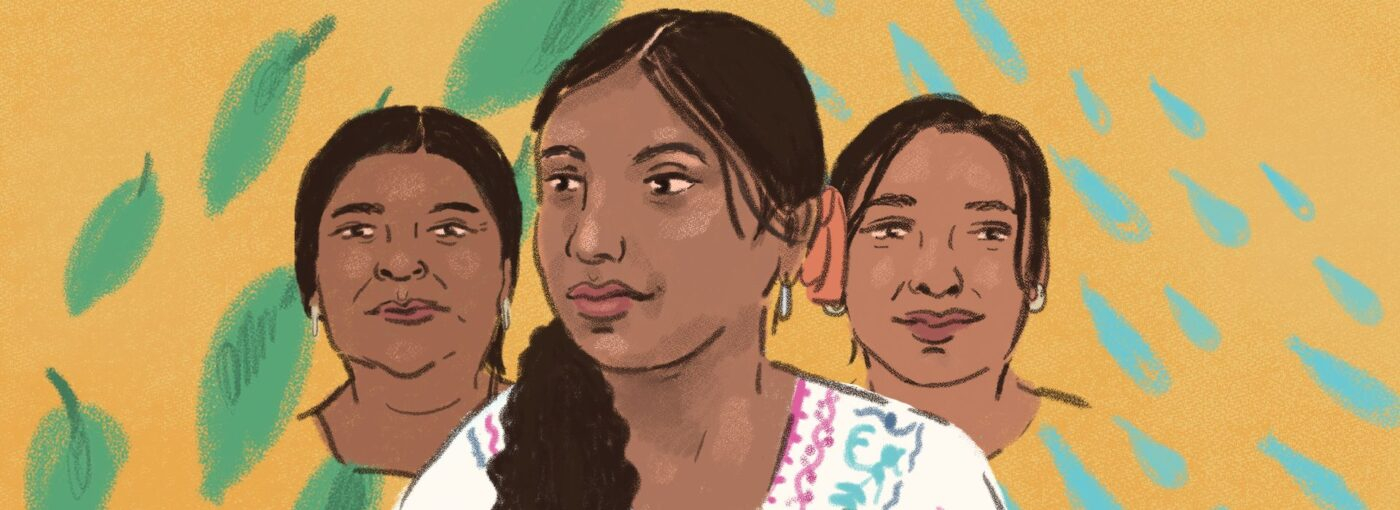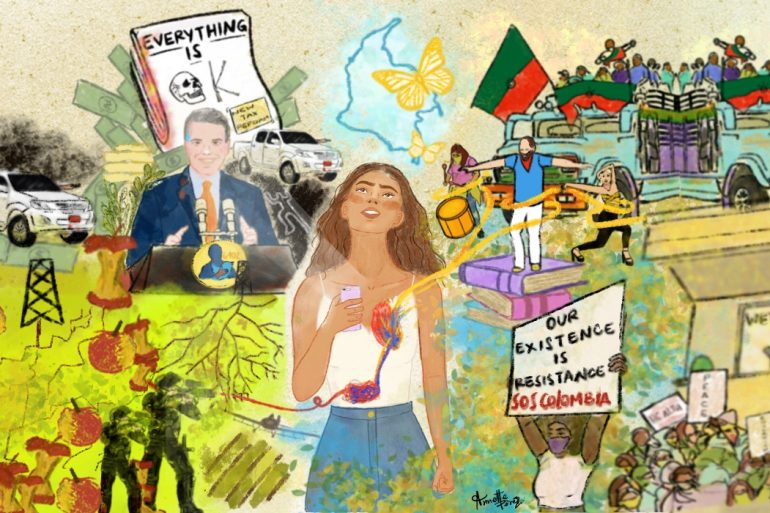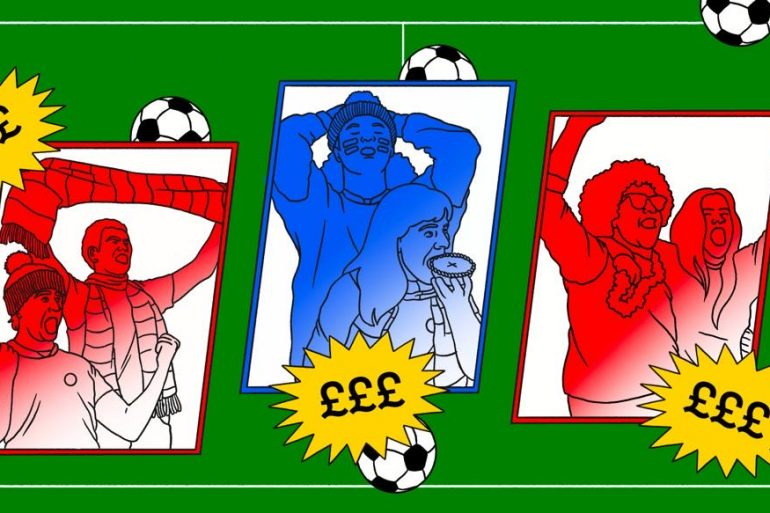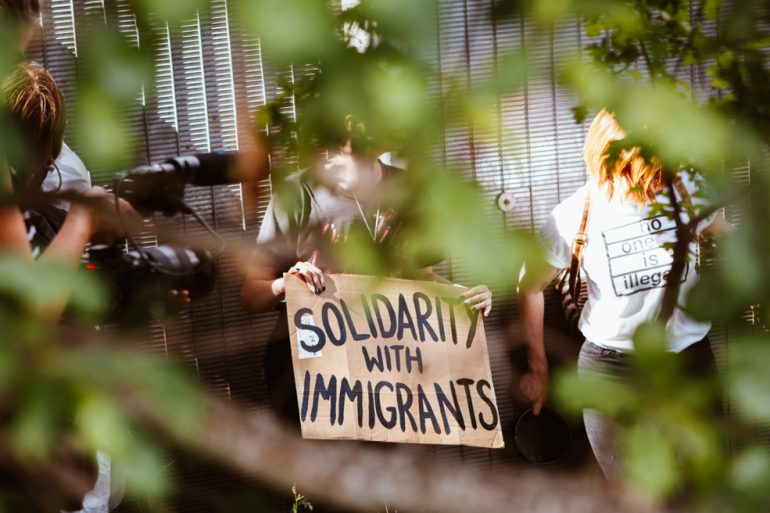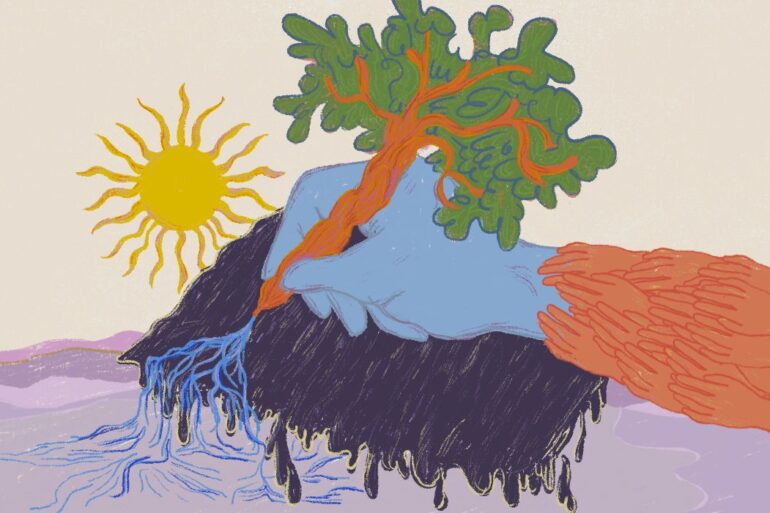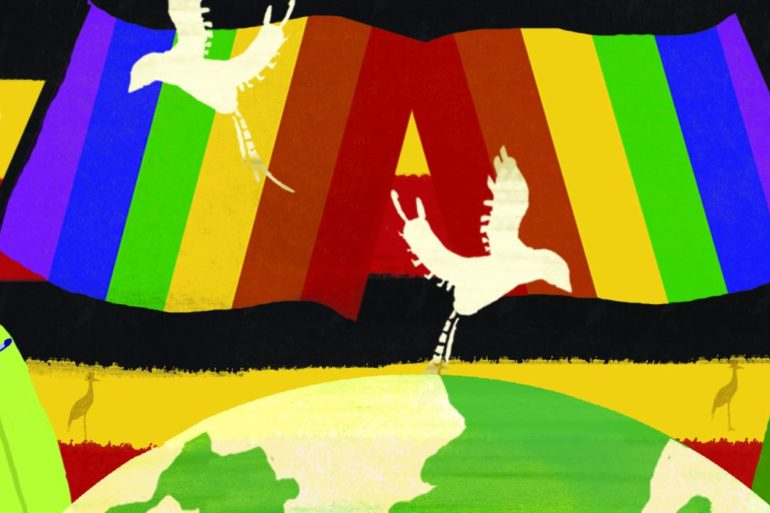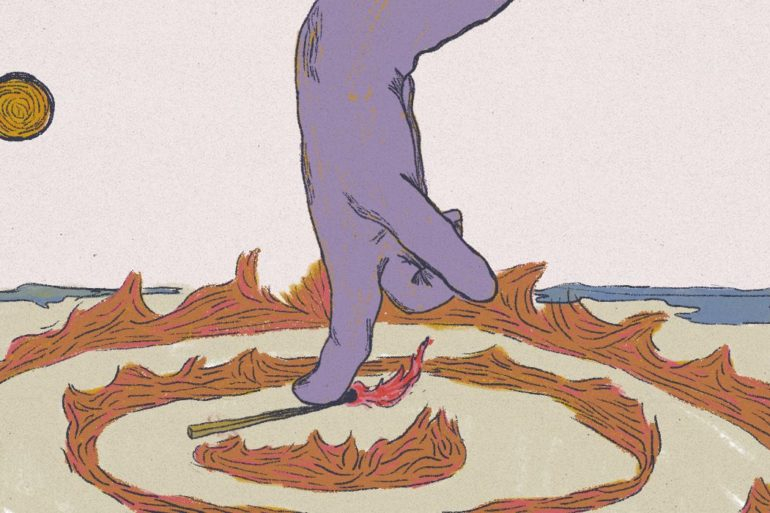Growing up, the majority of literature and films my parents allowed me to interact with centred on the ‘happily ever after’ theme. The ‘good characters’ always won in the end, while all evil came to rest. Perhaps they did this with intention to juxtapose the traumatic experiences I had to witness and embody from a young age. Knowing that a different world was possible, even one based on fantasy, allowed me to dream of a new day, even during moments of distress. It seems like dreaming has been the only reliable survival tool I can count on. Because, yes, dreaming is indeed a survival tool, especially now more than ever.
Dreaming becomes a tool of the revolution when we embrace the work that we do in order for our radically imagined future to exist. As we see a shift in political, social, economic and ecological structures, so much of the narrative I hear around me is to simply prepare for the end of the world; or in other words, to prepare for destruction and chaos. But whose world is really ending? Because as far as I know, what we are seeing come to an end is a world controlled by white supremacy, capitalism and patriarchy. So, as a woman of colour who is reconnecting to her Indigenous P’urhepecha roots, the dismantling of these oppressive structures will not be the end of my world.
According to the archiving of teachings passed down by P’urhepecha elders in Huíchu Kuákari, the P’urhepecha way of measuring time is always in cycles, and not so much by hours, or even months in a year. The ending of hegemonic structures is only part of one cycle within a large circular notion of time. These Indigenous teachings remind us that we can dream radical dreams while we dismantle cycles of hatred and destruction. This is not a singular world, or a binary we must follow. The envisioning of a new world, no matter how radical it may seem is fundamental to the process of getting there. Using the work of radical Black feminists, community organisers and nature as inspiration, adrienne maree brown writes both in her book Emergent Strategy, about the importance of radically shifting our imagination from only working under capitalist and colonial frameworks. She states in Emergent Strategy, “We are in an imagination battle”.
And far too many people have spent significant time imagining the apocalypse.
Recently however, I don’t find myself asking what I must know to navigate the apocalypse. Instead, I ask how I’ll prepare to engage in a post-apocalyptic world. Or better yet, how will I prepare to engage in a world free from capitalism, patriarchy and white supremacy? To me, this is where the more complex, but perhaps more pleasurable work begins. Building systems based on care and relationships is not an easy process. The vulnerability and trust that this work requires us to demonstrate may be beyond what many of us have been indoctrinated to experience. However, must continue taking small actions in this direction, in order to dream beyond an apocalypse.
adrienne maree brown defines emergent strategy as “the way small actions and connections create complex systems, patterns that become ecosystems and societies”. Using this structure as a foundation, I shift my focus on the small actions I can take today, that are seeds for a new world.
Lately, my small action has been focused on maintaining good relationships with everyone around me. And that does not mean to just be in harmony with other humans, but also with plant-ancestors, water spirits and the land we live on itself. I am a P’urhepecha descendant, living in diaspora on occupied Coast Salish territory. So I must not only hold myself accountable to the ancestors and land my people come from, but the land and water I currently occupy. Chiyokten from the Saanich nation, a fellow community organiser I met through Sustainable Seattle, shared with me on my podcast, Raices Verdes, that it is crucial we introduce ourselves and pay respects to every body of water and land that we interact with for the first time, and continue to do so as we harvest and engage with these elements. Can you imagine what kind of world we would live in if we all took the time to greet the land and water like we do with each other? The change can start with you today.
You can engage in practices of gratitude and reciprocity with the earth without appropriating Indigenous ceremonies and knowledge. As Robin Wall Kimmerer writes in her book Braiding Sweetgrass:
“…while expressing gratitude seems innocent enough, it is a revolutionary idea. In a consumer society, contentment is a radical proposition. Recognising abundance rather than scarcity undermines an economy that thrives by creating unmet desires. Gratitude cultives an ethic of fullness, but the economy needs emptiness”.
We all have a relationship to the earth, and it is part of our revolutionary acts of love to engage with the earth not as if we believe it is coming to its death, but rather engage with its strength to sustain life beyond our systems of oppression. The systems of oppression currently in place are younger than we have been made to believe. We must embrace the ‘end of the world’, not as a tragedy, but as an opportunity to change our allegiances. The quote from Kimmerer presented above is from her chapter titled “Allegiance to Gratitude”, where she shares with her readers the “Words That Come Before All Else”, translated from the Onondaga language, which offers a prayer or pledge to the earth rather than to a settler colonial nation like we have been indoctrinated to memorise. Who would you thank and honor in your own “allegiance to gratitude”?
I no longer dream of the apocalypse because I am too busy dreaming about our liberation.
Dreaming of systems of care, focusing on when I feel joy and spiritual protection in moments of distress. I envision what sovereignty, justice and love will feel, smell, taste and look like after the end of the world comes. It is not a utopia, because humans will always be complex and make mistakes, but the systems in place will nurture us and give us the space to heal and learn from our mistakes instead of further perpetuating cycles of harm. When the end of our current systems comes, I know where I will be, holding it down, waiting quietly for the time to gather once again, open to love and trusting that we will know what to do in order to build a new reality.


